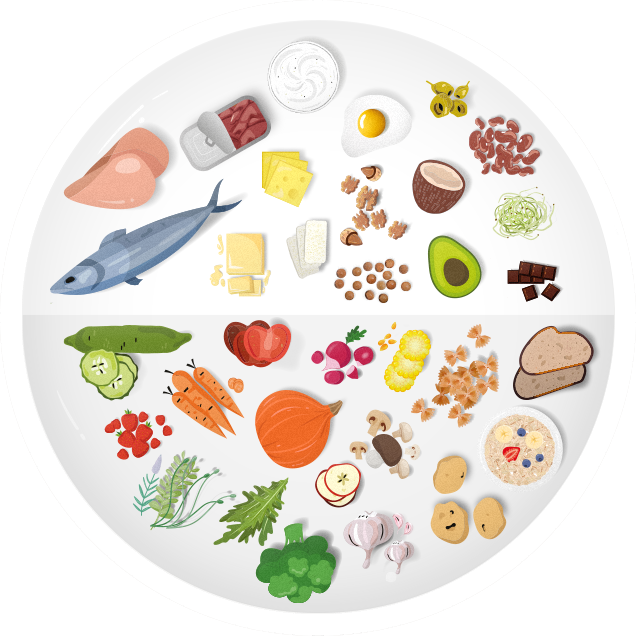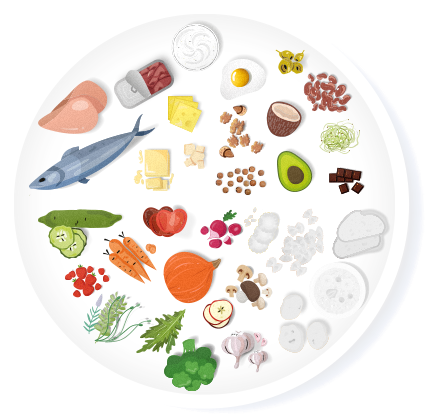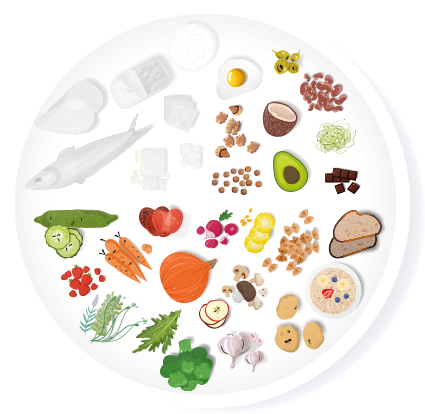Проводник по настоящей еде
Здоровое питание основано на настоящих пищевых продуктах и блюдах, приготовленных из них. Ведь основой здоровья является не чудодейственное соотношение питательных веществ, количество граммов какого-либо продукта, количество калорий или порций. Здоровое питание может иметь различную форму. Многим подойдёт изображённое сбалансированное питание, кому-то может хорошо помогать растительное питание с более высоким содержанием сахаридов, а кому-то другому питание с низким содержанием сахаридов и более высокой долей жиров и белков.
Источники жиров и белков
мясо и внутренности, рыба и плоды моря, молоко и несладкие молочные продукты, яйца, бобовые, орехи и семечки / растительные масла экстра вирджин, масло, сало
Источники сахаридов
овощи и фрукты, грибы, картофель, крупы, пшено, гречка, рис, овсяные хлопья, выпечка из дрожжевого теста, макароны
Потребности человека
достаток движения и сна, нахождение на свежем воздухе и солнце, хорошее настроение и друзья





